The DARIAH Annual Event 2025 held in Goettingen, Germany between June 17-20, proved to be an exceptional platform for introducing ECHOES to the broad Digital Humanities research community. As one of the key events in the European digital humanities calendar, it brought together scholars, infrastructure providers, and practitioners from across various disciplines, creating the ideal environment to present the ECHOES vision, gather feedback, and build new collaborations.
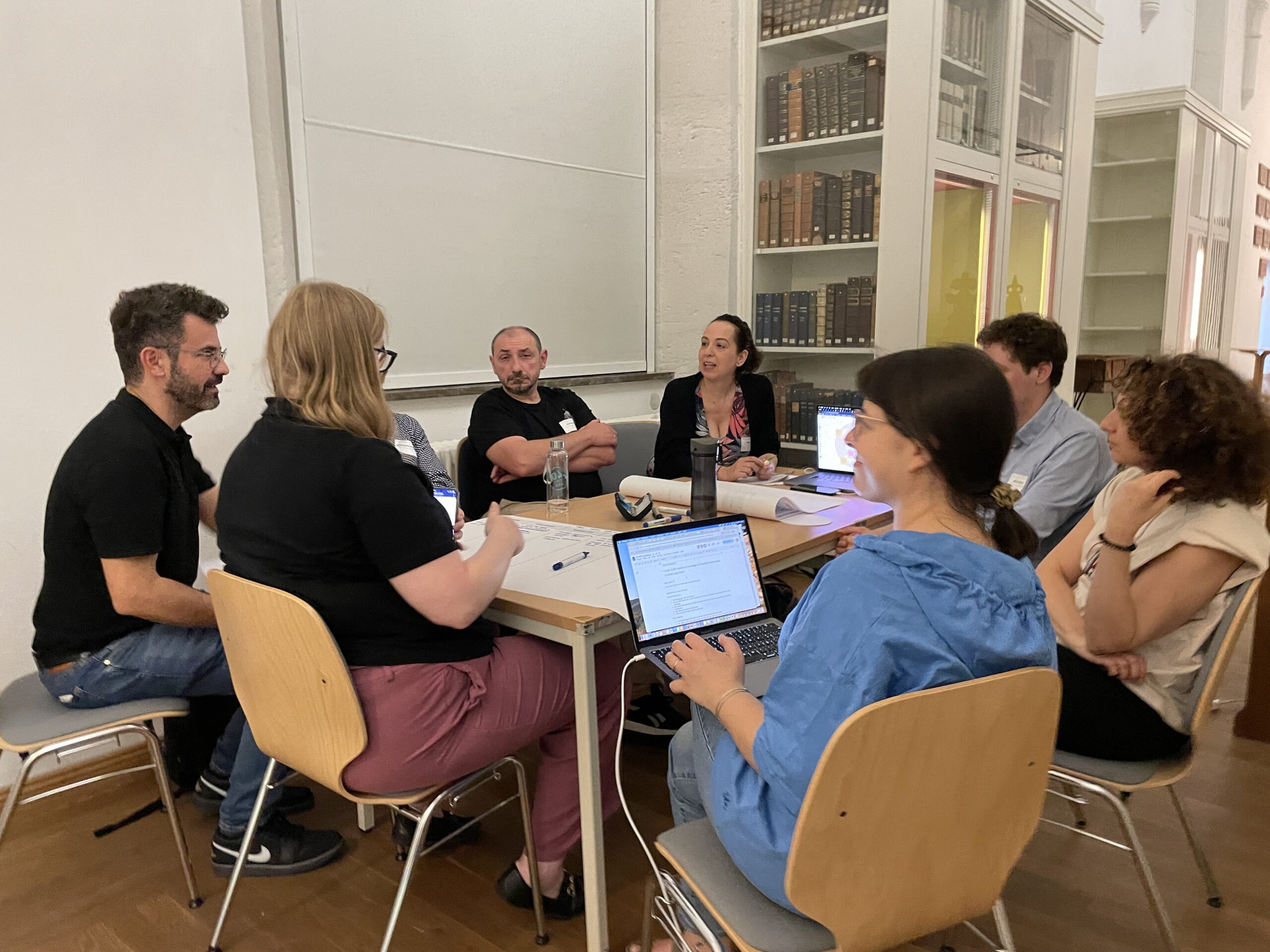
Participants at the ECHOES Workshop
Throughout the event, ECHOES featured prominently in three major sessions that highlighted the project’s progress and ambitions. From the hands-on Collaborative Research Scenario Workshop, which enabled in-depth engagement with ECHOES’ early-stage tools and user-centred development process, to the Consultation Corner, offering one-on-one exchanges with interested researchers, to our participation in the Let’s Talk Infrastructure panel, where ECHOES was positioned among leading SSH infrastructure initiatives, each occasion underscored the project’s commitment to co-design, openness, and interdisciplinary dialogue.
Collaborative Research Scenarios Workshop
On Tuesday, June 17, 2025, the ECHOES Co-design User Needs and Collaboration Scenarios Workshop, co-organised by DARIAH and The Cyprus Institute in the context of Work Package 3, brought together researchers and practitioners to engage with the early-stage tools, resources, and vision of the ECHOES project.
With over 25 participants from across ECHOES Work Packages as well as representatives of the DARIAH community and a few external colleagues, the workshop focused on identifying target user types and understanding their needs through hands-on activities using scenario mock-ups, empathy maps, and test workflows. Participants explored how ECHOES’ planned offerings, such as asset management, Heritage Digital Twins and collaborative tools, can support interdisciplinary research.
In the morning, attendees were introduced to the ECHOES infrastructure and the concept of Collaborative Research Scenarios (CRS). They then worked together to define key user categories and communities of practice.
The afternoon session was dedicated to co-design: participants developed example CRS using ECHOES materials and reflected on how these tools could enhance collaboration across domains. The day concluded with a guided evaluation of the proposed use scenarios to help inform ongoing development.
This workshop is the first of a series and marks a key step toward shaping ECHOES around the actual needs of its future users and supporting a stronger, more connected digital heritage research and professional environment.
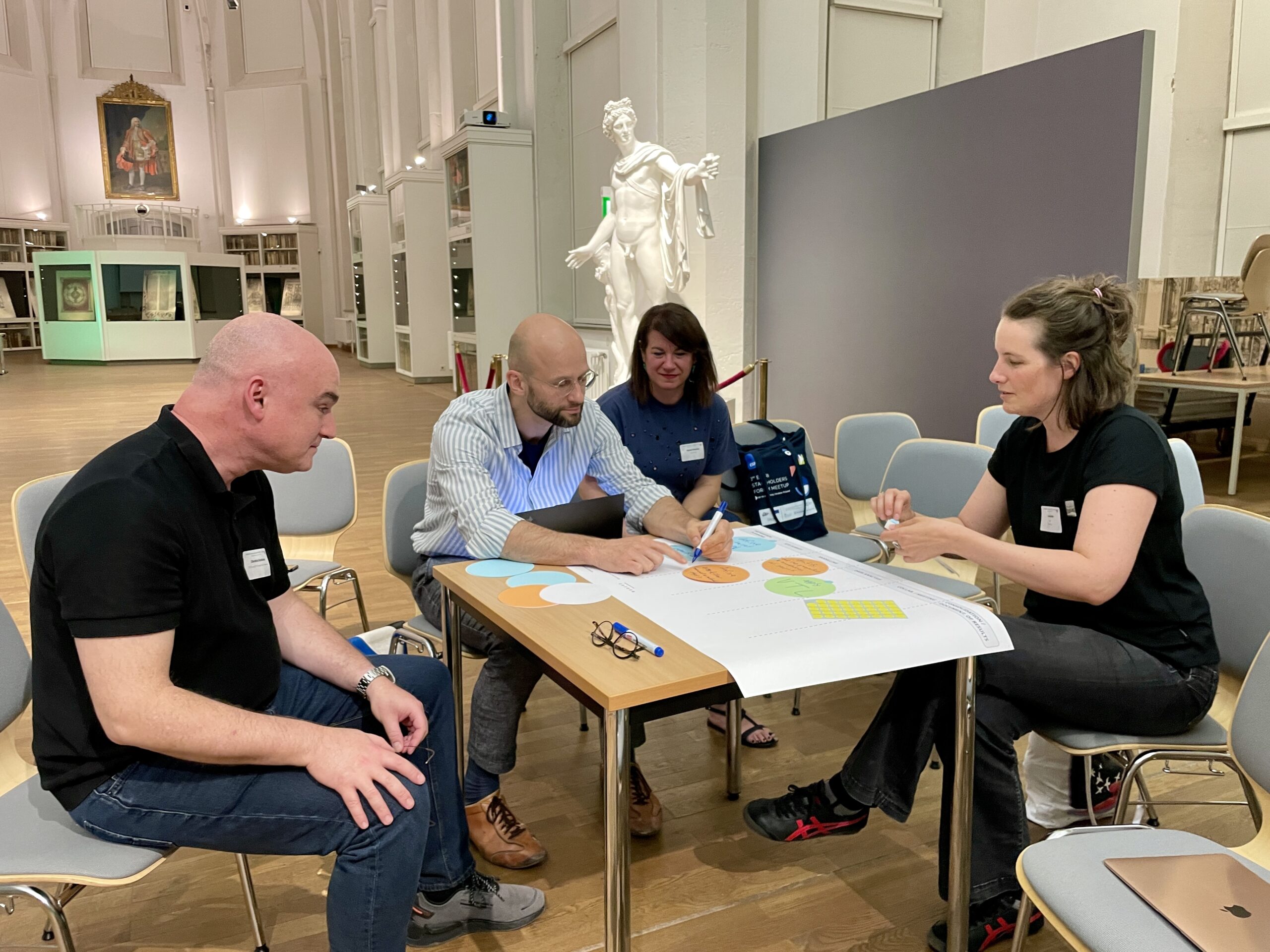
A Workshop break-out group
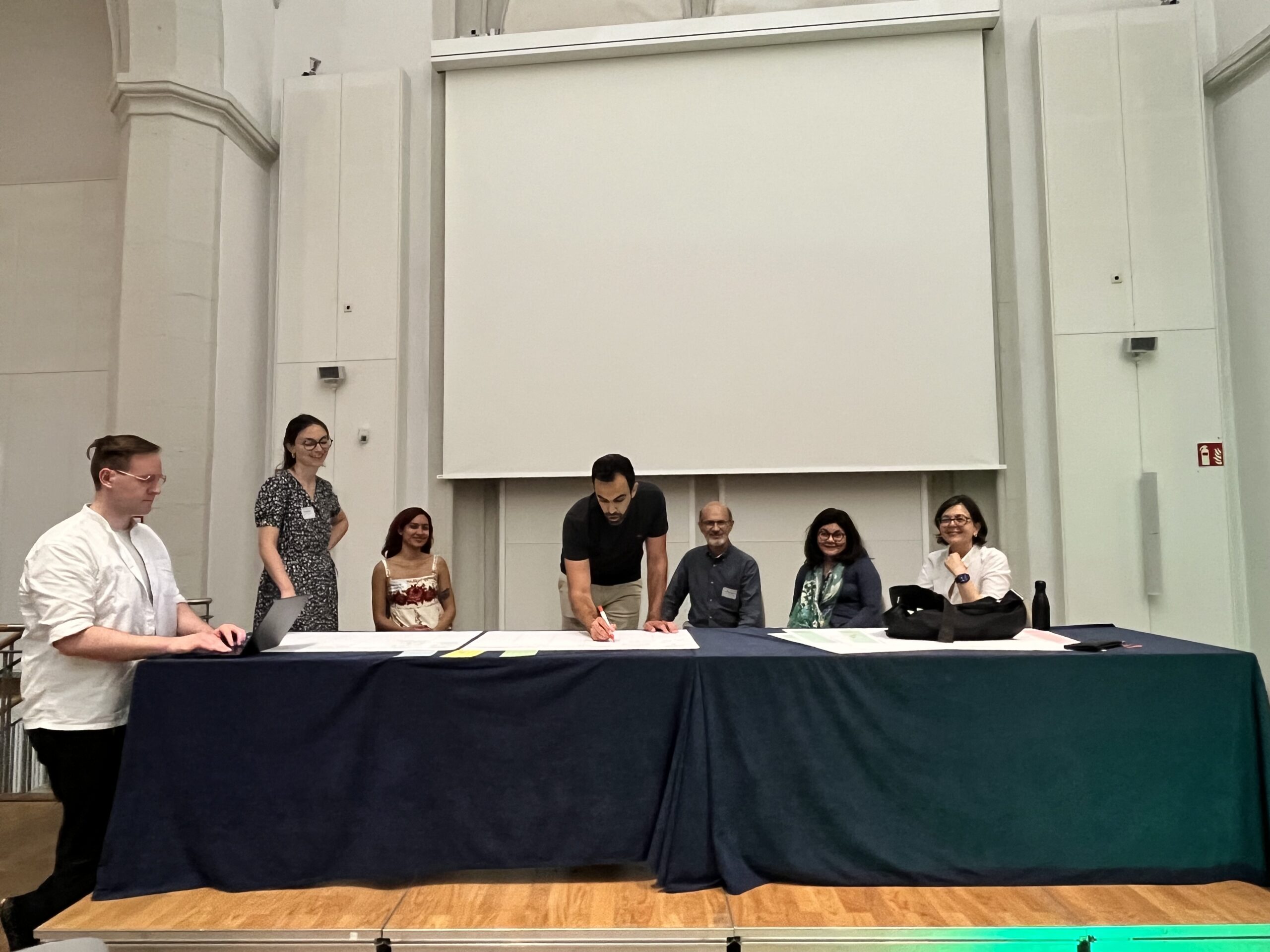
Another of the break-out groups
Consultation Corner
The Fondation des Sciences du Patrimoine had the chance to host an ECHOES Consultation Corner on Wednesday, June 18, 2025. This session allowed over 25 DARIAH AE attendees to drop in, enquire and learn more about the project and the current ECHOES Consultation. It was also an opportunity to highlight the broad definition of Cultural Heritage addressed by ECHOES.
‘Let’s Talk Infrastructure’ Session Presentation

C. Gallini and R. Petitcol present ECHOES
On Thursday, June 19, 2025, ECHOES was invited to join the ‘Let’s Talk Infrastructure’ panel, chaired by Tomasz Parkoła from the Poznan Supercomputing and Networking Center, also a partner in ECHOES, to present the project to a wider audience and demonstrate how it aims to help researchers in the Social Sciences and Humanities (SSH) address the current opportunities and challenges of the field. We also presented how attendees could get involved through the Consultation and the Cascading Grants programme. The presentation was followed by a round table discussion with colleagues from the Austrian Centre for Digital Humanities and Cultural Heritage (ACDH-CH), Austrian Academy of Sciences (OEAW) who presented the Social Sciences and Humanities Marketplace (SSHOMP), representatives from the University of Szeged, Hungary, who discussed the AVOBMAT (Analysis and Visualization of Bibliographic Metadata and Text) multilingual research tool, and Europeana. Among other topics, the questions touched upon the development and interactions between the various tools and services presented.



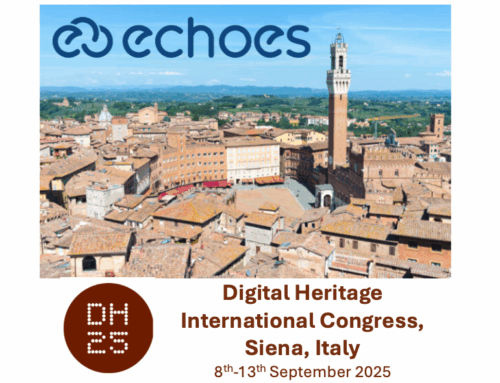

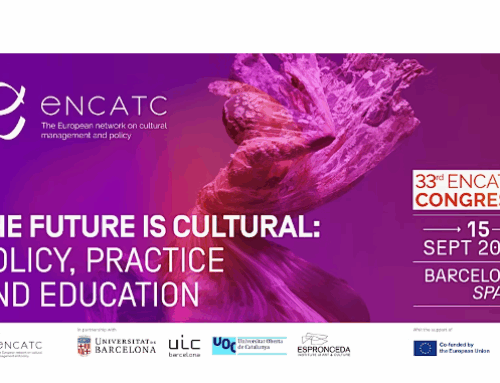
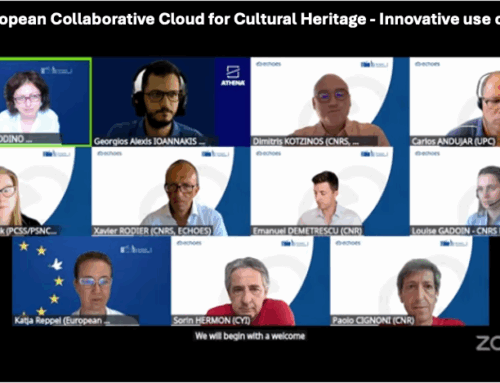

![UKRI_Horizontal_RGB[W] UKRI logo with white font](https://www.echoes-eccch.eu/wp-content/uploads/2024/06/UKRI_Horizontal_RGBW-e1721298347860.png)
